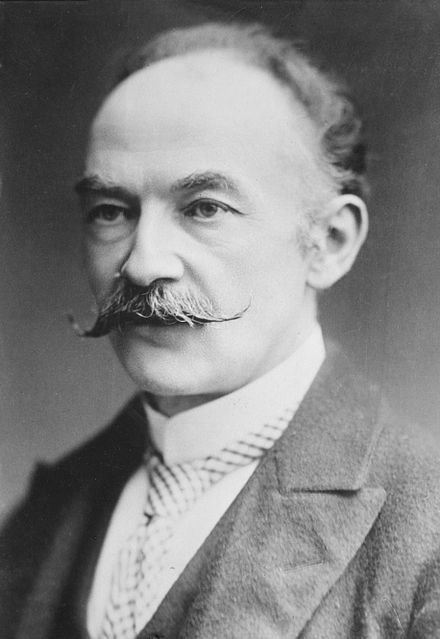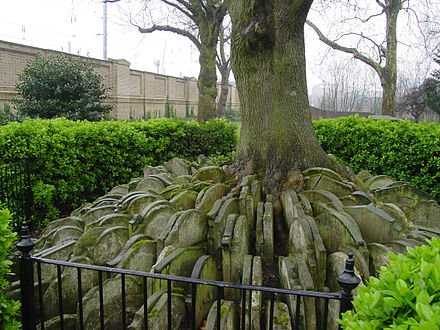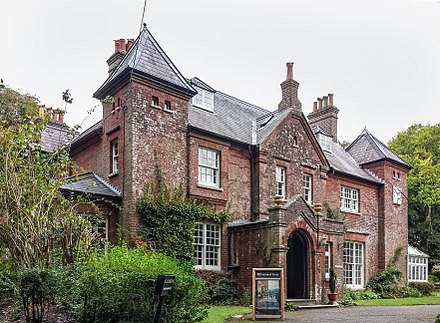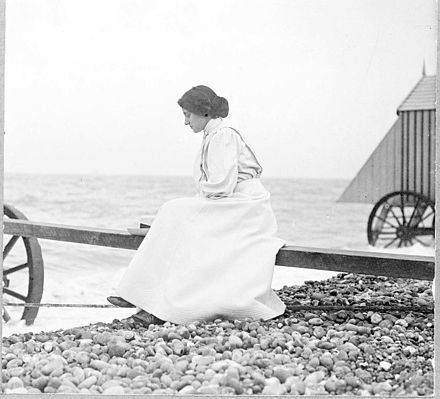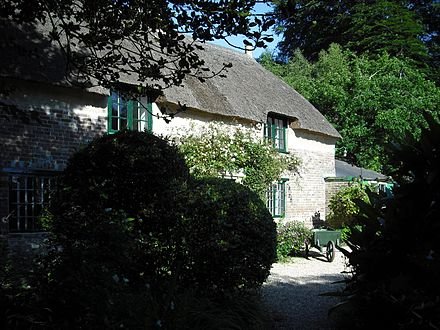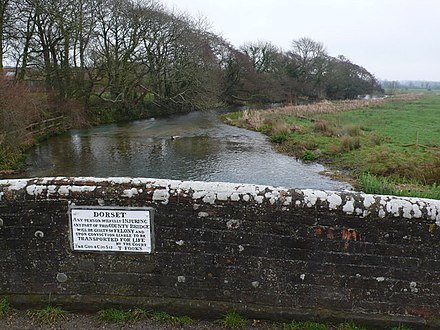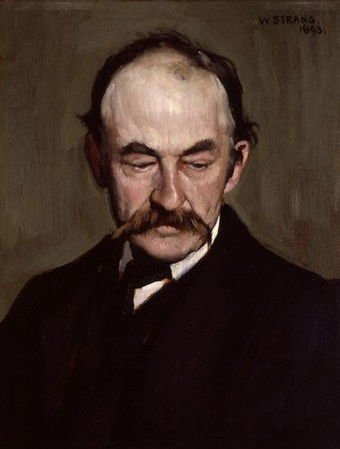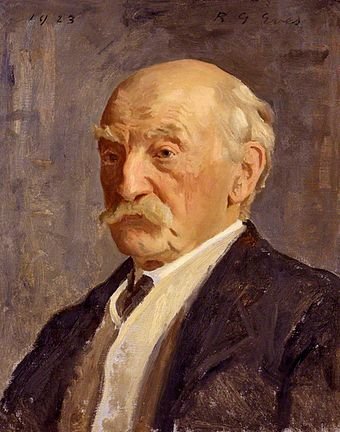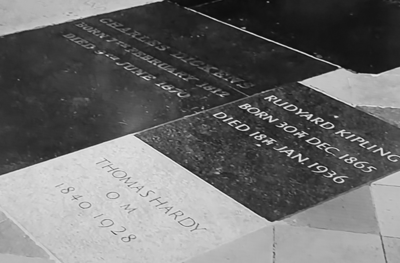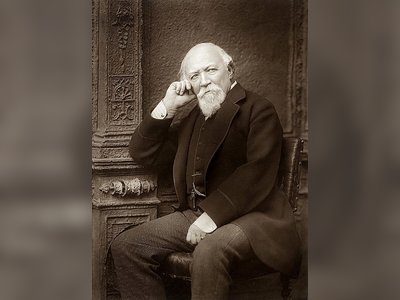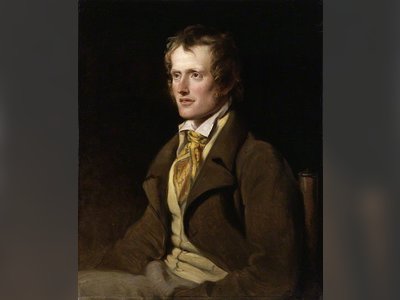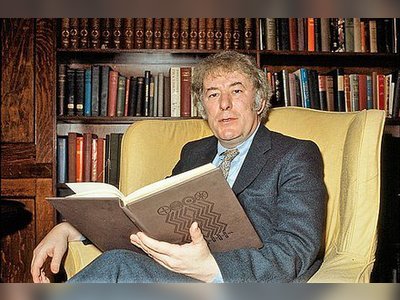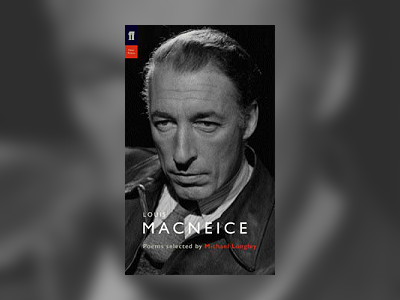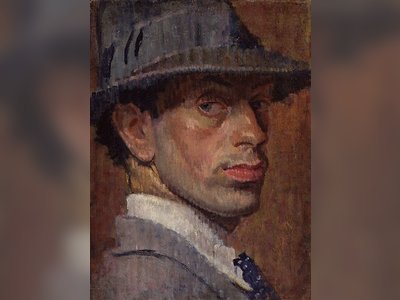British Heritage
Remember, Cherish, Learn.
beta
Thomas Hardy - Victorian Novelist c. 1880s
Contribution of Thomas Hardy to British Heritage.
Thomas Hardy, the renowned Victorian novelist and poet, made significant contributions to British heritage through his literary works and unique perspective on societal issues. Born on June 2, 1840, in the hamlet of Higher Bockhampton, Dorset, England, Hardy was deeply connected to the landscapes and people of South West England, which became the backdrop for many of his novels. He emerged as a leading Victorian realist, following in the tradition of George Eliot, and was strongly influenced by Romanticism and the poetry of William Wordsworth.
Hardy's novels and poems often criticized the social injustices prevalent in Victorian society, particularly the declining status of rural communities in his native region. He skillfully portrayed tragic characters struggling against their passions and societal constraints. One of his defining features as a writer was his use of the semi-fictional region of Wessex, which initially encompassed the medieval Anglo-Saxon kingdom but later expanded to include counties like Dorset, Wiltshire, Somerset, Devon, Hampshire, and Berkshire in Southwest and South Central England. His works celebrated the beauty of this region and its cultural heritage, leaving an enduring mark on British literature and identity.
Thomas Hardy's literary legacy rests on his masterful novels and poetry, which captivated readers during his lifetime and continued to resonate with subsequent generations. Some of his most acclaimed novels include "Far from the Madding Crowd" (1874), "The Mayor of Casterbridge" (1886), "Tess of the d'Urbervilles" (1891), and "Jude the Obscure" (1895). These works explored human complexities, social norms, and the consequences of fate, setting new standards for Victorian literature.
Though Hardy regarded himself primarily as a poet, his fame initially came from his novels. However, his poetry gained recognition among younger poets, including the Georgians, who saw him as a mentor. After his passing in 1928, prominent poets such as Ezra Pound, W. H. Auden, and Philip Larkin lauded his poetry, solidifying his place as one of the great poets of the 20th century.
Thomas Hardy's contribution to British heritage lies in his portrayal of rural England and its people, which he immortalized through his literary works. His vivid depictions of landscapes and local customs showcased the beauty and traditions of the Wessex region. Moreover, he addressed social issues prevalent during the Victorian era, shedding light on the struggles faced by rural communities amid the rapid urbanization and industrialization of Britain.
By incorporating the region of Wessex into his novels and poetry, Hardy added a layer of historical and cultural significance to the British literary landscape. His works have become a part of the nation's cultural heritage, preserving a snapshot of Victorian England and the transition it underwent during that period.
During his lifetime, Thomas Hardy achieved both critical and commercial success as a novelist and poet. His novels garnered widespread acclaim for their realism, emotional depth, and powerful storytelling. Readers were drawn to his captivating characters and the moral dilemmas they faced, making his novels popular among the Victorian audience.
Though he considered himself primarily a poet, Hardy's first collection of poems was not published until 1898. Nevertheless, his poetry was highly regarded by fellow poets, and he gained recognition as a significant figure in the world of English poetry.
Thomas Hardy was born on June 2, 1840, in Higher Bockhampton, a hamlet in Dorset, England. His father, Thomas Hardy Sr., was a stonemason and local builder, and his mother, Jemima Hand, was a well-read woman who educated him until he attended school at the age of eight. Hardy's formal education ended at sixteen when he became an apprentice to architect James Hicks.
In 1862, Hardy moved to London to pursue his architectural career and enrolled as a student at King's College London. He won awards from the Royal Institute of British Architects and the Architectural Association. However, he never felt at ease in London, and the class divisions prevalent in society troubled him deeply. Hardy's passion for social reform and exposure to various philosophical and literary ideas shaped his worldview and found expression in his works.
His literary journey took a pivotal turn in 1870 when he met Emma Gifford, whom he later married in 1874. The two lived in various locations, including London and Dorchester, but ultimately settled in Max Gate, a house designed by Hardy and built by his brother in Dorchester.
Thomas Hardy's literary career spanned novels, short stories, and poetry. His novels, set in the fictional region of Wessex, explored themes of love, fate, and societal norms. While some of his works faced controversy and criticism, they earned him a place among the most celebrated writers of his time.
Hardy's poetic journey was equally influential, with his verses evoking a sense of melancholy and an exploration of the human condition. His poems often questioned the traditional concept of God, and he delved into themes of suffering, disappointment, and the mysteries of life and death.
On January 11, 1928, Thomas Hardy passed away at Max Gate due to pleurisy. His funeral at Westminster Abbey sparked controversy, with his heart buried alongside his first wife, Emma, at Stinsford, and his ashes laid in Poets' Corner.
Through his literary contributions, Thomas Hardy left an indelible mark on British heritage, enriching the nation's literary tapestry and contributing to a deeper understanding of Victorian society, human nature, and the landscapes of rural England. His works continue to be celebrated and studied, ensuring his enduring legacy as a great Victorian novelist and poet.
Hardy's novels and poems often criticized the social injustices prevalent in Victorian society, particularly the declining status of rural communities in his native region. He skillfully portrayed tragic characters struggling against their passions and societal constraints. One of his defining features as a writer was his use of the semi-fictional region of Wessex, which initially encompassed the medieval Anglo-Saxon kingdom but later expanded to include counties like Dorset, Wiltshire, Somerset, Devon, Hampshire, and Berkshire in Southwest and South Central England. His works celebrated the beauty of this region and its cultural heritage, leaving an enduring mark on British literature and identity.
Legacy of Thomas Hardy
Thomas Hardy's literary legacy rests on his masterful novels and poetry, which captivated readers during his lifetime and continued to resonate with subsequent generations. Some of his most acclaimed novels include "Far from the Madding Crowd" (1874), "The Mayor of Casterbridge" (1886), "Tess of the d'Urbervilles" (1891), and "Jude the Obscure" (1895). These works explored human complexities, social norms, and the consequences of fate, setting new standards for Victorian literature.
Though Hardy regarded himself primarily as a poet, his fame initially came from his novels. However, his poetry gained recognition among younger poets, including the Georgians, who saw him as a mentor. After his passing in 1928, prominent poets such as Ezra Pound, W. H. Auden, and Philip Larkin lauded his poetry, solidifying his place as one of the great poets of the 20th century.
Contribution to British Heritage
Thomas Hardy's contribution to British heritage lies in his portrayal of rural England and its people, which he immortalized through his literary works. His vivid depictions of landscapes and local customs showcased the beauty and traditions of the Wessex region. Moreover, he addressed social issues prevalent during the Victorian era, shedding light on the struggles faced by rural communities amid the rapid urbanization and industrialization of Britain.
By incorporating the region of Wessex into his novels and poetry, Hardy added a layer of historical and cultural significance to the British literary landscape. His works have become a part of the nation's cultural heritage, preserving a snapshot of Victorian England and the transition it underwent during that period.
Success of Thomas Hardy
During his lifetime, Thomas Hardy achieved both critical and commercial success as a novelist and poet. His novels garnered widespread acclaim for their realism, emotional depth, and powerful storytelling. Readers were drawn to his captivating characters and the moral dilemmas they faced, making his novels popular among the Victorian audience.
Though he considered himself primarily a poet, Hardy's first collection of poems was not published until 1898. Nevertheless, his poetry was highly regarded by fellow poets, and he gained recognition as a significant figure in the world of English poetry.
General Information about Thomas Hardy
Thomas Hardy was born on June 2, 1840, in Higher Bockhampton, a hamlet in Dorset, England. His father, Thomas Hardy Sr., was a stonemason and local builder, and his mother, Jemima Hand, was a well-read woman who educated him until he attended school at the age of eight. Hardy's formal education ended at sixteen when he became an apprentice to architect James Hicks.
In 1862, Hardy moved to London to pursue his architectural career and enrolled as a student at King's College London. He won awards from the Royal Institute of British Architects and the Architectural Association. However, he never felt at ease in London, and the class divisions prevalent in society troubled him deeply. Hardy's passion for social reform and exposure to various philosophical and literary ideas shaped his worldview and found expression in his works.
His literary journey took a pivotal turn in 1870 when he met Emma Gifford, whom he later married in 1874. The two lived in various locations, including London and Dorchester, but ultimately settled in Max Gate, a house designed by Hardy and built by his brother in Dorchester.
Thomas Hardy's literary career spanned novels, short stories, and poetry. His novels, set in the fictional region of Wessex, explored themes of love, fate, and societal norms. While some of his works faced controversy and criticism, they earned him a place among the most celebrated writers of his time.
Hardy's poetic journey was equally influential, with his verses evoking a sense of melancholy and an exploration of the human condition. His poems often questioned the traditional concept of God, and he delved into themes of suffering, disappointment, and the mysteries of life and death.
On January 11, 1928, Thomas Hardy passed away at Max Gate due to pleurisy. His funeral at Westminster Abbey sparked controversy, with his heart buried alongside his first wife, Emma, at Stinsford, and his ashes laid in Poets' Corner.
Through his literary contributions, Thomas Hardy left an indelible mark on British heritage, enriching the nation's literary tapestry and contributing to a deeper understanding of Victorian society, human nature, and the landscapes of rural England. His works continue to be celebrated and studied, ensuring his enduring legacy as a great Victorian novelist and poet.
- Thomas Hardyen.wikipedia.org
